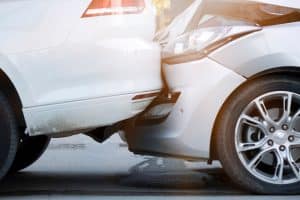How Does a Deposition Work in a Charlotte, NC Car Accident Case?
 Most car accident claims come to a settlement before they are brought to court. However, when there are cases that involve severe injuries, then a Charlotte car accident claim may have to go to trial. Victims of the accident will likely hire an experienced car accident attorney who will help them negotiate with insurance companies or the at-fault parties to reach a fair compensation for the injuries they sustained in the crash. When it comes to this, the attorneys on both sides will start the discovery process so they are both aware of any and all evidence before it is presented in court. During this process, both sides will most likely take depositions.
Most car accident claims come to a settlement before they are brought to court. However, when there are cases that involve severe injuries, then a Charlotte car accident claim may have to go to trial. Victims of the accident will likely hire an experienced car accident attorney who will help them negotiate with insurance companies or the at-fault parties to reach a fair compensation for the injuries they sustained in the crash. When it comes to this, the attorneys on both sides will start the discovery process so they are both aware of any and all evidence before it is presented in court. During this process, both sides will most likely take depositions.
What is a deposition?
A deposition is an out-of-court statement given under oath by parties involved in the case. If you were subpoenaed to give a deposition for a car accident, you were likely involved in the accident itself or were a witness to it. The purpose of a deposition is to ask questions related to the accident in advance of the trial. Unlike in popular television shows, there is rarely surprising information that comes up during trials that throws the other side off. Both sides study the evidence and testimonies in order to have a fair trial. This also gives them the opportunity to confirm or discredit witness testimonies later.
What happens at a car accident deposition?
A deposition usually takes place in an attorney’s office and is in the form of a written transcript, video, or both. Both sides going to trial also have the right to be in the room as the deposition is happening. The opposing side can submit a list of questions they want asked ahead of time or cross-examine the witness themselves.
When taking part in a deposition, you must answer all questions honestly. The attorney, or whoever is taking the deposition, will also ask you to:
- Swear an oath
- Speak in full, complete sentences
- Only answer questions you know—do not guess
- Do not talk over the person taking the deposition
- Confirm you are not under the influence of alcohol or drugs
- Verify how you prepared for the deposition
What kinds of questions will I be asked in a deposition?
The questions asked will usually be pretty straightforward and start off with information about your background. First, you will be asked to confirm your name, address, date of birth. Then, they may ask about your job history, medical history, criminal history, or other past lawsuits. After, they will dive into more specific questions about your car accident, like:
- Where were you coming from and where were you headed?
- What were the weather conditions?
- How was traffic?
- How far was the other car from you when you first saw it?
- How fast were you going?
- How fast was the other car going?
- What damage occurred to the cars and where?
- What injuries have you sustained from the accident?
- How much have you spent in medical bills from those injuries?
The person giving the deposition will ask many questions similar to these, related to how the accident occurred and the injuries that were sustained.
What if I don’t know the answer?
If you do not know the answer to one of the deposition questions, the best thing you can do is say that. Replying with “I don’t know” is an acceptable response if you truly cannot answer the question. Guessing just for the sake of providing an answer can hurt you in the long run as this gives the other side an opportunity to discredit your testimony.
“Tricky” deposition questions
Some questions are harder than others or are worded in ways that can “trick” you into answering in a way that you did not intend. Watch out for things like:
- Compound questions. These combine two questions into one, which can make you either confess to two things or accidentally lie about one. For example, “Is it true that you were texting as you ran the stop sign?”
- Specific value questions. You may be asked for the speed at which you were traveling, the time of the accident, or the distance between cars. Unless you were given this precise information in records and remember it, it is unlikely you will be able to give an exact correct answer. You can still answer the question if you wish, but make it clear that your answer is an estimate and try to provide a range.
- Leading questions. These attempt to get you to agree with a fact by disguising it as a question. For example, “You weren’t wearing your seatbelt, were you?”
- Existing document questions. You may be asked about facts within documents. Instead of trying to remember what those documents were, you can ask to see it to refresh your memory and answer honestly.
- “Yes” or “no” questions. Sometimes simply answering with one of those is not enough information and your response needs more clarification.
Will my lawyer be present for a deposition in Charlotte, NC?
An attorney will help prepare you for a deposition by going over the facts and making you aware of those tricky questions to look out for. You are not required by law to bring an attorney with you for a deposition, but it is highly recommended. Having your car accident attorney present can only help. They can request the person asking to rephrase questions more clearly or will object to any unfair questions. Knowing someone is on your side throughout the process can be very reassuring and make you feel more confident.
What happens after the deposition ends?
Once the deposition is complete, both sides will receive a copy of the transcript along with any evidence entered. There may need to be additional witnesses called in for a deposition if any new, relevant people were mentioned. If you just completed a deposition and claimed an injury occurred during the car accident, you may also be asked to submit to a defense medical examination. A doctor will look at your symptoms and injuries to ensure they are directly related to the accident.
For a fair trial, each side will have the exact same information but will interpret it in ways that will support their client or claim. At this point, the case can continue on to trial. However, the case can also be settled if one side does not wish to continue the case or cannot create a strong enough defense for a jury to agree.
How our Charlotte, NC car accident lawyers can help with your deposition
Answering questions about your accident claim can be stressful. It may have been weeks or months since the accident occurred, and your injuries may prevent you from remembering what happened. On top of that, it can feel like you are being “attacked” by the opposing counsel.
Our Charlotte car accident lawyers will help prepare you for your deposition. We can review the types of questions you will be asked as well as what rights you can exercise during the meeting. We will review the car accident report as well as your medical records, too. During the deposition itself, we will be by your side to lend support, and will object to any question that may be phrased in an attempt to trick you.
If you are subpoenaed to give a deposition, do not do it alone. Talk to the legal team at Price, Petho & Associates for advice and guidance on your Charlotte car accident case. We have years of expertise in car accident claims and are ready to go over every detail of your case. Call our office or submit our contact form to schedule a free consultation. We serve injured clients in Charlotte, Rutherfordton, and Rockingham.

Attorney Doug Petho is the owner and founder of Price, Petho & Associates. His primary focus is the litigation of plaintiff’s personal injury suits, and he has successfully tried hundreds of cases to jury verdict involving car accidents, trucking accidents, pedestrian accidents, slip and fall accidents, and work-related accidents. Contact his office in Charlotte today.
